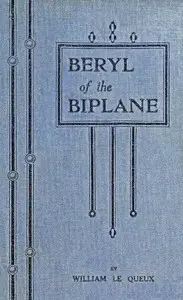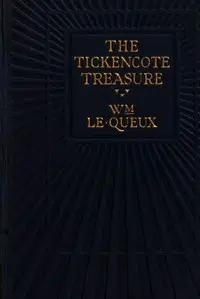"Whither Thou Goest" by William Le Queux is a love story from the start of the 1900's. It follows Guy Rossett, the Earl of Saxham's son, who desires to marry Isobel Clandon, a woman who does not have a lot of money. His father is very much against it because of their different social classes. The story follows ideas about love, loyalty to family, and the problems that come with what society expects. Guy gets a job at the British Embassy in Madrid, which moves the story forward. Tension begins when the Earl of Saxham finds out his son wants to be with Isobel. The Earl sends Guy away which causes problems for the young lovers. The book introduces characters like Guy’s sister, Lady Mary, who helps her brother choose love. There are hints about dangerous political plots with anarchists in Spain and Guy’s new diplomatic role, which leads to exciting and romantic events in the story.

Whither Thou Goest
By William Le Queux
Torn apart by social class and political intrigue, two lovers must fight against societal expectations to find their way back to each other.
Summary
About the AuthorWilliam Tufnell Le Queux was an Anglo-French journalist and writer. He was also a diplomat, a traveller, a flying buff who officiated at the first British air meeting at Doncaster in 1909, and a wireless pioneer who broadcast music from his own station long before radio was generally available; his claims regarding his own abilities and exploits, however, were usually exaggerated. His best-known works are the anti-French and anti-Russian invasion fantasy The Great War in England in 1897 (1894) and the anti-German invasion fantasy The Invasion of 1910 (1906), the latter becoming a bestseller.
William Tufnell Le Queux was an Anglo-French journalist and writer. He was also a diplomat, a traveller, a flying buff who officiated at the first British air meeting at Doncaster in 1909, and a wireless pioneer who broadcast music from his own station long before radio was generally available; his claims regarding his own abilities and exploits, however, were usually exaggerated. His best-known works are the anti-French and anti-Russian invasion fantasy The Great War in England in 1897 (1894) and the anti-German invasion fantasy The Invasion of 1910 (1906), the latter becoming a bestseller.



















